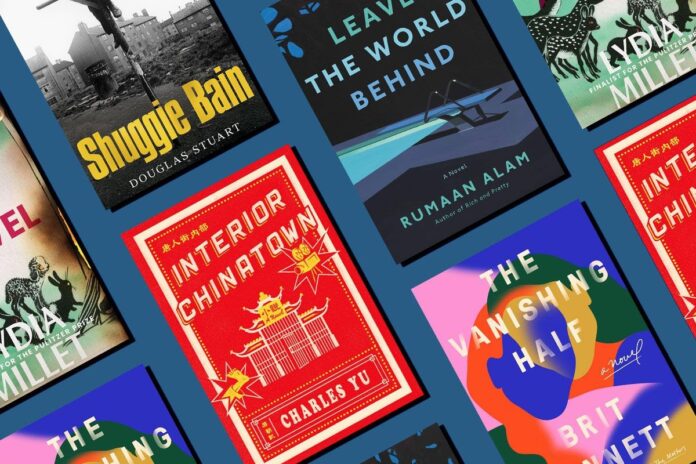
By Eileen Wang
Out of the twenty five nominees, five authors have been chosen as the 2020 National Book Award winners in fiction, nonfiction, poetry, translated literature, and young people’s literature.
Charles Yu’s deeply personal novel, Interior Chinatown, about race, pop culture, as well as immigration, and assimilation, was selected as the winner of the National Book Award for fiction. After receiving the coveted award, a very surprised Mr. Yu was quoted as saying: “I can’t feel anything in my body right now.” His well-received novel earned much praise with The Washington Post stating, “One of the funniest books of the year. . . . A delicious, ambitious Hollywood satire.”
The winner of the National Book Award for nonfiction went to Les Payne and Tamara Payne for their touching biographic profile on Malcolm X. The award proved to be especially emotional for Tamara, as her father, as well as research partner, passed away. During her sentimental speech, she said, “This is such a bittersweet moment. I really wish my father was here for this.” The Dead Are Arising: The Life of Malcolm X received much praise with Michael P. Jeffires of the New York Times Book Review stating, “Malcolm’s presence is beautifully rendered…Nobody has written a more poetic account…Payne also shows how enthralling it was to watch Malcolm improvise and argue. In this scene and others, we are exposed to Malcolm’s teachings within the rhythm of Payne’s masterly storytelling.”
The winner of the National Book Award for poetry was claimed by author Don Mee Choi for her beautifully crafted collage about the unheard voices from the Korean War and the Park Chung Hee military dictatorship in South Korea, as well as her own personal history. Don’s moving piece was given outstanding reviews, with Publisher Weekly stating, “Playful and complex … Choi’s poetry operates within a tradition of Korean-American experimental poets that includes Theresa Hak Kyung Cha and Myung Mi Kim. Choi’s zany take on militarism and the Korean diaspora may seem absurdist, but it is an inventive and daring waltz that upends what is commonly understood as the ‘Forgotten War.’”
Yu Miri’s Tokyo Ueno Station, a translated novel originally written in Japanese, was named the winner of the National Book Award for translated literature. Her surreal, devastating story of a homeless ghost who haunts one of the busiest train stations in Tokyo, touched the hearts of many. Yu received much recognition for her heart-touching novel, with The New York Times writing, “One thing Yu can do is write. She is simultaneously a social outcast and a literary star, a dark, brooding presence on the bookshelves. A creative genius.”
The National Book Award for young people’s literature went to Kacen Callender for his piece, King and the Dragonflies, which features an African American boy who is struggling with the death of his brother. His highly-rated piece deservedly received plenty of recognition, with Kirkus Reviews writing, “Callender’s vivid descriptions…are magical…Elegiac and hopeful.”
The Literarian Award, which recognizes the recipient’s contributions to the American literary community, was awarded posthumously to the Simon & Schuster chief executive who passed away in May, Carolyn Reidy. Her husband, Stephen Reidy, accepted the award in place of her. The Literarian Award was presented by Mrs. Reidy’s close colleagues.
The National Book Foundation’s Medal for Distinguished Contribution to American Letters, a lifetime achievement, went to novelist Walter Mosley. Mr. Mosley is the first Black man to receive the award in the award’s 32-year history.
